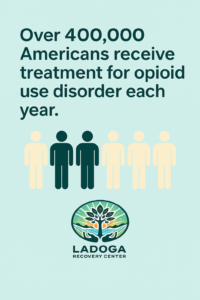There were moments when I truly believed I was done with alcohol for good. I’d stack a few months of sobriety, feel clear-headed again, and think, “Maybe I didn’t need all that treatment after all.” But the truth? I was white-knuckling it. I hadn’t done the deep work. And every time I thought I had it beat, it came back louder.
If you’re reading this after a relapse—especially if you made it 90 days, 120, a full year—you’re not broken. You’re not starting over from scratch. And you’re definitely not alone.
Here are five times I thought I was cured… and what I finally understand now.
1. When I Made It Through a Wedding Sober
I remember feeling invincible. Dancing at my cousin’s wedding with a club soda in hand, surrounded by champagne toasts—and I didn’t cave. I thought that meant I was strong enough now.
What I Know Now:
White-knuckling a night doesn’t equal recovery. It takes more than willpower—it takes tools, support, and healing the reasons I drank in the first place. Getting through one night is powerful, yes. But real recovery means knowing what to do with the feelings that show up the next day.
2. When My Life Got “Better” on the Outside
New job. Apartment. Even a new relationship. People told me I seemed “great.” I started to believe it. Who needs alcohol detox when you’re adulting like a pro?
What I Know Now:
Just because life looks better doesn’t mean I feel better. Alcohol wasn’t just about escape—it was a symptom of deeper pain. I was checking the boxes, but I hadn’t touched the grief, the shame, the stuff that always came roaring back in quiet moments. I’ve learned that the goal isn’t just to get my life in order—it’s to make peace with the parts of myself I used to drink away.
3. When I Hit 90 Days and Thought I Was Fixed
The 90-day chip felt like magic. I was proud. Deservedly so. But somewhere in that pride was a lie I didn’t want to see: “You’ve done enough.”
What I Know Now:
90 days is a milestone, not a finish line. I needed to stay connected to treatment, peers, and truth. That chip didn’t make me immune—it was an invitation to keep going. Celebrating milestones matters. But assuming they mean we’re “cured” can set us up for the fall.
4. When I Got Bored and Thought That Meant I Was Fine
No chaos. No drama. Just… normal. And honestly? I got bored. I told myself that meant I was stable enough to have a drink now and then. Just socially.
What I Know Now:
Boredom is a trigger too. So is comfort. I had to learn how to sit with stillness—and not confuse it with “cured.” Recovery isn’t the absence of chaos. It’s the presence of peace. And peace takes practice. I needed to rebuild my relationship with stillness before I could trust it.

5. When I Used a Slip as Proof I Was Hopeless
One drink turned into three. A night turned into a weekend. And I told myself, “See? You were never really sober. You’re a fraud.”
What I Know Now:
Relapse doesn’t erase the work I’ve done. It shows me where I still need help. And that’s okay. I’m allowed to return. I’m allowed to begin again. If anything, coming back takes more strength—not less. Every attempt taught me something. And one of those lessons finally stuck: I needed a safe, structured place to start again.
What Made the Difference This Time
I went back to detox—this time at Ladoga Recovery Center in Indiana. Not because I hit rock bottom, but because I was tired of circling the same drain. I was met with respect, not shame. A team that didn’t talk down to me. A plan that made sense.
It wasn’t easy. Detox never is. But it was clear, and it was safe, and I stayed long enough to build something real this time. I kept showing up. And eventually, it started to feel like life was happening again—not just survival.
FAQs About Relapse, Sobriety, and Alcohol Detox
Is relapse normal in recovery?
Yes. Many people experience relapse as part of their recovery process. It’s not a moral failure or a sign that treatment didn’t work. It’s information. And it can be a turning point if you use it to get honest and get help.
Do I have to start over from day one?
Not emotionally. While many programs track clean time from your last use, your experience, lessons, and growth don’t get erased. You are not back at zero. You are returning wiser.
When is detox needed after relapse?
If you’ve returned to regular drinking or feel physically dependent again, a medically supervised detox can help you withdraw safely. Especially if alcohol withdrawal has ever caused you shaking, sweating, seizures, or intense cravings, detox is an important first step.
What does alcohol detox look like at Ladoga Recovery?
At Ladoga Recovery Center in Indiana, alcohol detox is medically supervised and designed for safety. You’re monitored 24/7, given medication if needed to ease symptoms, and supported emotionally throughout the process.
Can I come back even if I’ve relapsed more than once?
Yes. There is no limit to how many times you can come back. Healing is not linear. If you’re ready, or even just willing, the door is open.
Maybe You’ve Been Here Too
If any of this feels too familiar—if you’re carrying that “I messed it all up” weight—I want to remind you: relapse doesn’t mean you failed. It means you’re still fighting. And there’s real help in Indiana that isn’t about shame—it’s about strategy, safety, and support.
If you’re thinking about giving recovery another try, Ladoga Recovery Center’s alcohol detox program is ready when you are.
Need a safe place to reset?
Call us at (844) 628-6202. Whether it’s your first detox or your fifth, Ladoga Recovery Center is here to help you start fresh—without judgment, without pressure.

